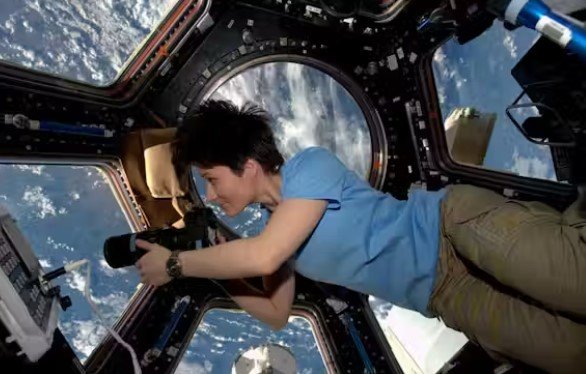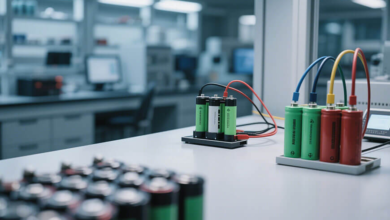
How AI is Revolutionizing Space Exploration
Introduction to AI in Space
Artificial Intelligence (AI) is swiftly transforming the landscape of space exploration. By introducing unprecedented levels of automation, efficiency, and precision, AI is enabling space agencies and private companies to push the boundaries of what is possible in space. This revolution is not just about improving current space technologies but about reimagining how humanity interacts with and explores the cosmos.
The History of AI in Space Exploration
The journey of AI in space exploration began with the need for more sophisticated computational systems to assist with space missions. Initially, these systems were rudimentary, aiding in navigation and basic data analysis. Over the years, AI’s role has expanded dramatically. From the early use of expert systems to manage spacecraft systems to the deployment of AI-driven rovers on Mars, each milestone has marked a significant leap in our capability to explore space autonomously.
AI in Satellite Operations
Satellites are the eyes and ears of our planet in space, monitoring everything from weather patterns to communications. AI is revolutionizing satellite operations by optimizing their functionality. AI algorithms can manage the complex data processing tasks that satellites perform, ensuring that they operate efficiently and communicate effectively with ground stations. Furthermore, AI enhances the ability of satellites to autonomously detect and respond to anomalies, reducing the need for human intervention and increasing the lifespan and reliability of these vital instruments.
AI in Spacecraft Navigation
Navigating the vastness of space requires precision and foresight. AI plays a critical role in enhancing spacecraft navigation systems, providing real-time data analysis, and predictive modeling to ensure accurate and efficient travel. By utilizing machine learning algorithms, AI can predict potential hazards, optimize fuel consumption, and even adjust trajectories mid-flight to avoid obstacles or capitalize on gravitational assists. This not only increases the safety of missions but also reduces operational costs and extends the potential range of spacecraft.
AI in Autonomous Space Missions
One of the most exciting applications of AI in space exploration is in autonomous missions. These are missions where spacecraft or rovers operate independently of direct human control, making real-time decisions based on their environment. AI enables these unmanned missions to navigate, gather data, and even troubleshoot issues on their own. For example, the Mars rovers, equipped with AI systems, can identify and prioritize scientific targets, analyze samples, and communicate findings back to Earth with minimal human intervention.
AI for Planetary Exploration
The exploration of other planets, such as Mars, is fraught with challenges. AI is at the forefront of overcoming these obstacles by powering robotic explorers that can autonomously navigate alien terrains. These AI-driven robots are equipped with advanced sensors and learning algorithms that allow them to analyze soil samples, detect signs of past life, and create detailed maps of planetary surfaces. AI’s ability to process vast amounts of data quickly and accurately makes it indispensable in these missions, where every piece of information could be a clue to understanding the planet’s history and potential for life.
AI in Space Robotics
Space robotics is another area where AI is making significant strides. Intelligent robots, powered by AI, are being designed to perform tasks that are too dangerous or impractical for humans. From assembling structures in space to repairing satellites, these robots can carry out complex tasks with a level of precision that was previously unattainable. AI allows these robots to learn from their experiences, adapt to new challenges, and operate autonomously in the harsh environment of space.
AI in Space Data Analysis
Space missions generate vast amounts of data that require processing and analysis. AI is revolutionizing this aspect by offering powerful tools to manage and interpret these datasets. Machine learning algorithms can sift through terabytes of information to identify patterns, make predictions, and provide insights that would be impossible to derive manually. This capability is crucial for missions that involve the continuous monitoring of distant planets, the search for extraterrestrial life, or the study of cosmic phenomena.
AI and Space Weather Forecasting
Space weather, such as solar flares and cosmic rays, poses a significant threat to both manned and unmanned missions. AI is being used to predict these events with greater accuracy, allowing for better preparation and mitigation strategies. By analyzing historical data and current conditions, AI can forecast space weather patterns, helping to protect satellites, spacecraft, and astronauts from potentially catastrophic impacts.
AI in Astrobiology
Astrobiology, the study of life beyond Earth, is another field being transformed by AI. AI systems are being used to analyze complex biological data, search for biosignatures in planetary atmospheres, and model the potential for life in extreme environments. The ability of AI to handle large datasets and identify subtle patterns makes it an invaluable tool in the search for extraterrestrial life, potentially answering one of humanity’s most profound questions: Are we alone in the universe?
For more information visit:
AI for Space Habitation
Building sustainable habitats in space requires intelligent systems that can manage resources, maintain life support systems, and adapt to changing conditions. AI is integral to the development of these smart habitats, which can monitor and regulate environmental conditions, optimize energy use, and even manage waste. These AI-driven systems ensure that space habitats are safe, sustainable, and capable of supporting human life for extended periods.
AI in Space Mining
The concept of mining resources from asteroids or other celestial bodies is no longer science fiction, and AI is at the heart of making this a reality. AI-powered systems can identify and extract valuable resources with minimal human intervention. By automating the process of locating, analyzing, and mining materials, AI reduces the risks and costs associated with space mining, making it a viable option for future space missions.
AI and Human-AI Collaboration
AI is not just replacing human functions in space; it’s enhancing them. In human-AI collaborative missions, AI systems work alongside astronauts, providing them with real-time data, simulations, and decision-making support. This collaboration extends the capabilities of human crews, enabling them to perform more complex tasks and make informed decisions even in critical situations.
AI in Space Traffic Management
As the number of satellites and spacecraft in orbit continues to grow, managing space traffic becomes increasingly challenging. AI is being deployed to monitor and predict the movements of objects in space, preventing collisions and ensuring the safe operation of all missions. By analyzing trajectories and potential risks, AI systems can provide timely warnings and optimize the paths of satellites and spacecraft to avoid accidents.
Ethical Considerations of AI in Space
While AI offers numerous benefits for space exploration, it also raises ethical concerns. Issues such as the autonomy of AI systems, the potential for errors, and the need for oversight are all critical considerations. Ensuring that AI is used responsibly in space, with appropriate checks and balances, is essential to prevent unintended consequences and maintain trust in these technologies.
Challenges in Implementing AI in Space
Deploying AI in space comes with its own set of challenges. These include technical limitations, such as the need for robust and reliable hardware that can withstand the harsh conditions of space, as well as the complexity of developing AI systems that can operate autonomously in unpredictable environments. Additionally, the vast distances involved in space missions can lead to communication delays, making real-time AI decision-making even more critical.
For more information click here: https://lagrada.net/
AI and Space Exploration Costs
One of the significant advantages of AI in space exploration is its potential to reduce costs. By automating tasks, optimizing resource use, and enabling more efficient mission planning, AI can lower the expenses associated with space missions. This cost-saving potential is particularly important as space exploration becomes more ambitious and involves more extended missions to distant planets and asteroids.
Future Trends in AI and Space
The future of AI in space exploration is bright, with several emerging trends set to redefine the field. These include the development of more sophisticated AI systems capable of deeper learning and adaptation, the integration of AI with other advanced technologies such as quantum computing, and the increasing use of AI in collaborative international missions. As AI continues to evolve, its role in space exploration will only become more central, enabling missions that are more ambitious, efficient, and far-reaching than ever before.
Case Studies of AI in Space Exploration
Numerous real-world examples demonstrate the transformative impact of AI on space exploration. The Mars rovers, for instance, have successfully used AI to navigate the Martian surface and conduct scientific experiments autonomously. Similarly, AI has been integral to satellite missions, where it has been used to optimize imaging and data collection. These case studies highlight the practical benefits of AI in enhancing the capabilities and outcomes of space missions.
The Role of AI in International Space Cooperation
AI is also playing a crucial role in fostering international collaboration in space exploration. As countries and organizations increasingly work together on joint missions, AI provides a common platform for sharing data, resources, and expertise. This collaboration not only accelerates the pace of discovery but also helps to standardize technologies and protocols across different space-faring nations.
Conclusion
Artificial Intelligence is undeniably revolutionizing space exploration, bringing about a new era of discovery and innovation. From optimizing satellite operations to enabling autonomous missions and supporting human-AI collaboration, AI is at the heart of the most exciting advancements in space. As we look to the future, AI will continue to drive progress, making space exploration more efficient, safe, and expansive than ever before.
FAQs
What role does AI play in autonomous space missions?
AI enables spacecraft and rovers to operate independently of direct human control, making real-time decisions based on their environment.
How does AI help in space data analysis?
AI processes vast amounts of data quickly, identifying patterns and providing insights that would be impossible to derive manually.
Can AI predict space weather?
Yes, AI is used to predict space weather patterns, helping to protect missions from solar flares and cosmic rays.
What are the ethical concerns of using AI in space?
Ethical concerns include the autonomy of AI systems, the potential for errors, and the need for oversight to prevent unintended consequences.
How does AI reduce space exploration costs?
AI reduces costs by automating tasks, optimizing resource use, and enabling more efficient mission planning.
What is the future of AI in space exploration?
The future includes more sophisticated AI systems, integration with other technologies like quantum computing, and greater international collaboration.




